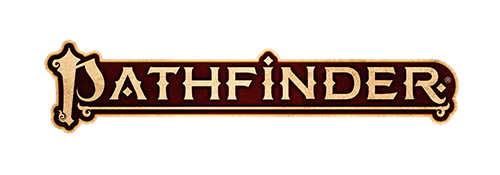| Uncommon | Maskani | Humanoid |
Ages ago, when most other fey who left the Wild to become mortal adopted and practiced the cultural norms of other humanoids, the maskani retained a tenuous connection to their fey home. These mischievous and playful racoon-like humanoids enjoy playing pranks, telling jokes and hearing good stories. Maskani are fierce defenders of their home, however, and can be a surprisingly dangerous foe, especially if in great numbers.
If you want to play an animal-like character who is both playful and ferocious, you should play a maskani.
You Might…
- Be playful and gregarious, and enjoying playing harmless pranks
- Always appear to be in good spirits, laughing and joking, despite your actual mood
Others Probably…
- Think you are a scavenger or thief
- Mistake your playful disposition as weakness
Physical Description
Maskani range in height from roughly three to almost four feet. They are covered head to toe in soft, thick black, brown or gray fur, with white markings on their head, chest and paws. Their large round eyes come in a variety of colors – black, brown, hazel or, rarely, green. Their short snout, similar to a racoon’s, has sensitive whiskers below a pattern of dark fur around their eyes and nose. Not all maskani have tails, but for those that do, they are long and bushy, with distinctive black and white rings.
Society
Maskani live in interconnected treehouses, crafted from sturdy branches and platforms woven with leaves and vines. These villages blend seamlessly with the canopy, offering excellent camouflage. Skilled at carpentry and weaving, maskani communities work together to build and maintain their treetop dwellings. While following a general design, each maskani family personalizes their treehouse with scavenged trinkets, trophies, and colorful fabrics.
Maskani society revolves around close-knit family units that work together to gather resources and raise young. Elders, repositories of wisdom and storytelling, are highly respected and hold leadership positions within the community. Cooperation and mutual aid are crucial for survival in the trees. Maskani society emphasizes working together and resolving conflicts peacefully. Oral traditions are strong among the maskani. They use stories, songs, and dances passed down through generations to teach history, survival skills, and their connection to the forest.
Beliefs
Maskani rarely pay heed to any so-called divine beings, preferring the lessons and guidance of powerful fey, or the tangible security of a devoted Enosi.
Popular Edicts Respect the home and the trees that hold them, share food and resources with your family and community
Popular Anathema reveal the location of a maskani village to outsiders, be cruel to animals
Adventurers
stuff
Names
Maskani young are given names typically evocative of nature or their forested homes. Family names are typically descriptive, often incorporating physical characteristics of the maskani people or other animals of the forest. Most take great pride in their family names as well, often preferring its use when among outsiders.
Sample Names
Maskani Names Ashling, Briar, Ember, Moss, Bristle, Twig, Whisper
Maskani Family Names Shadowhide, Swifteyes, Nimblepaw, Quiverwiskers
Maskani Mechanics
Hit Points
8
Size
Small
Speed
25 Feet
Ability Boosts
Dexterity
Free
Languages
Common
Maskani
Additional languages equal to your Intelligence modifier (if it’s positive). Choose from Estrali, Goblin, Harrath, Sylvan, Verdantic, and any other languages to which you have access (such as the languages prevalent in your region).
Low-Light Vision
You can see in dim light as though it were bright light, so you ignore the concealed condition due to dim light.

